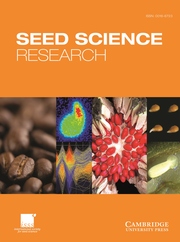No CrossRef data available.
Article contents
Enhancing vital non-technical workplace competencies for early career seed scientists
Published online by Cambridge University Press: 06 May 2018
Abstract
Graduate training programs often produce technically ‘savvy’ scientists with inadequate non-technical skill sets essential for workplace success. The challenges associated with lack of non-technical competency may be exacerbated in highly specialized fields such as seed science. This brief communication describes recent efforts conducted at the 12th Triennial Conference of the International Society for Seed Science to address non-technical skill development for pre-career professionals. Furthermore, I propose a few adaptable ideas to begin confronting the divide between graduate education and professional development.
- Type
- Short Communication
- Information
- Seed Science Research , Volume 28 , Special Issue 3: Seeds as Systems , September 2018 , pp. 182 - 185
- Copyright
- Copyright © Cambridge University Press 2018




